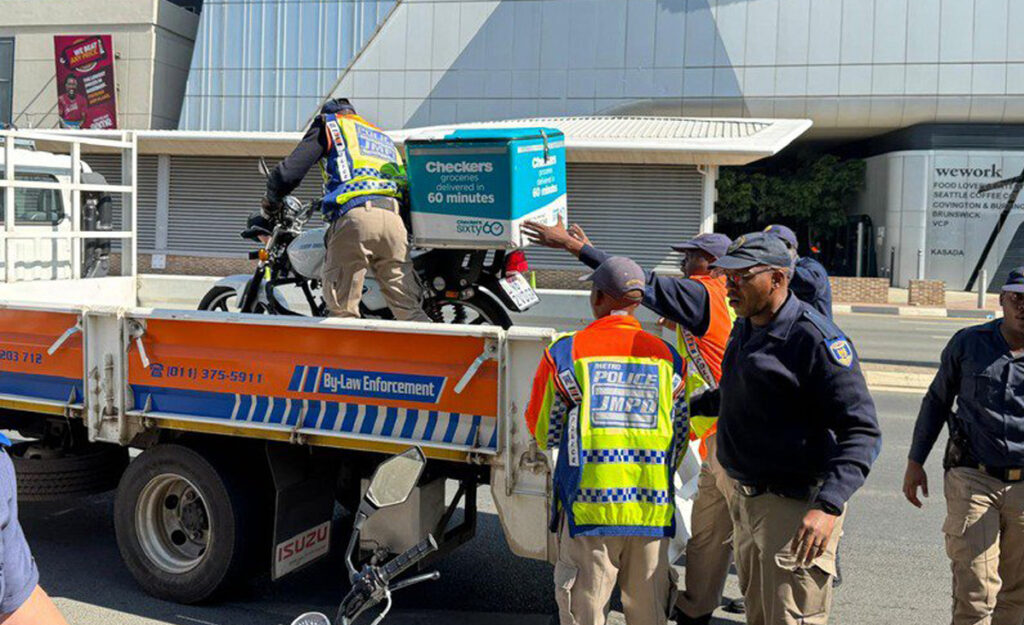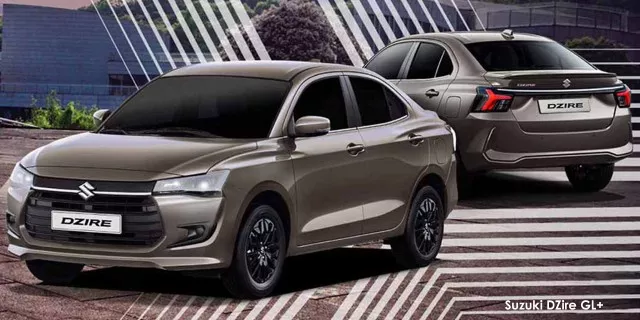
The Johannesburg Metropolitan Police Department (JMPD) has impounded 15 delivery motorbikes for illegal and unsafe activities.
The arrests are part of an ongoing road safety initiative meant to enforce municipal bylaws and protect motorists and pedestrians from reckless and non-compliant driving behaviour.
Over the past year, deliver bikes have been flagged as a safety concern by various stakeholders, warning that many drivers exhibit dangerous habits in an attempt to save time on their routes.
According to the JMPD, the metro has seen a concerning rise in unlawful delivery bike operations,
This includes riders who frequently obstruct roads and pavements, park illegally, and drive recklessly by speeding, ignoring traffic lights, and weaving through cars.
In addition, the metro police warned that several delivery drivers are not authorized to be on the roads for various reasons.
“Many riders lack valid driver’s licenses, vehicle license discs, and, for foreign nationals, proper immigration documentation such as passports and permits authorizing commercial operations in South Africa,” said JMPD spokesperson Xolani Fihla.
The metro officers in charge of the operation are tasked with six main objectives, which are as follows:
- Verifying driver’s licenses
- Checking vehicle license discs
- Monitoring and addressing unsafe driving behaviours
- Confirming immigration status and commercial permits
- Acting on any traffic violations linked to delivery services
- Enforcing parking regulations and impounding vehicles when necessary
Fihla stated that illegal and reckless driving threatens the safety of other road users, increases congestion, and limits accessibility, particularly for individuals with disabilities.
The JMPD also raised the issue that riders lacking documents, such as a driver’s licence, makes regulatory oversight more difficult.
The City of Johannesburg has therefore launched police operations around the metro to crack down on these practices.
These efforts have already resulted in the impoundment of 15 motorcycles for municipal violations such as a lack of licencing and obstructing traffic.
“Additionally, one individual was arrested for dealing in dagga, and ten others for contravention of the Immigration Act,” said Fihla.
These operations are meant to complement the existing road safety awareness campaigns run by the JMPD’s Community Outreach Unit.
The JMPD runs targeted awareness campaigns for delivery drivers, which emphasis bylaw compliance, obtaining the necessary documentation, and safe driving.
A known issue

Hein Jonker, the founder of Motorcycle Safety Institute of South Africa, previously warned about the issues that delivery drivers face, and how it can affect other road users.
One concerning aspect is that many riders originate from other countries in Africa, and are therefore unqualified to drive on South Africa’s roads.
“Some of these riders are not local, they’re foreign riders, and in other African countries, they may not have gone through a motorcycle licence test or any motorcycle training; they’ve learnt from their friends,” said Jonker.
Even if they do have a licence in their country of origin, they might not be eligible to drive in South Africa.
This is because other African countries issue licences that cover all vehicles of a smaller size, meaning a person with a light passenger car licence does not have to undergo a separate motorcycle exam.
This presents an obvious risk as many delivery drivers are not adequately prepared to ride their bike, especially in peak traffic conditions.
However, Jonke argued that the onus must fall on the employer to properly vet the individuals it takes on before putting them out on the road.
The other major issue with delivery bikes is that it is a high-pressure job that requires individuals to stick to a tight schedule.
Food deliveries are particularly difficult, as there is an added pressure to bring the requested items while they are still fresh.
This results in drivers taking risky maneuvers to save time, such as taking chances at a traffic light.








